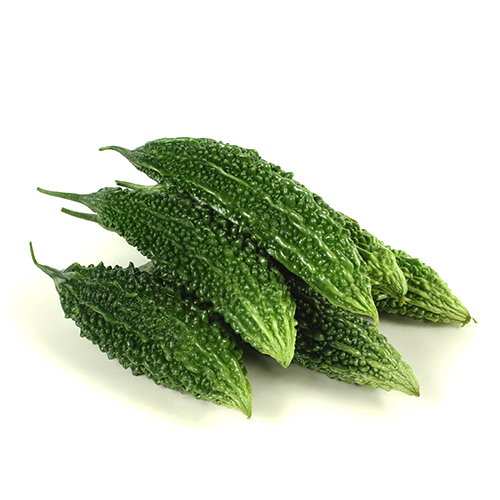Being a Muslim residing in the Western world is not easy when it comes to halal options.
Halal refers to meat which is prepared according to Islamic law. The term "halal" literally means "permissible" in Arabic, it encompasses more than dietary guidelines. It’s about ethical consumption, mindfulness, and respect for all creation.
The misconception when it comes to halal is that only pork meat is not permissible in Islam. But there is more to the definition of halal meat.
When we think of halal food, we picture the meticulous standards set for meat preparation. It includes the process of slaughtering the animal, and reciting of Quranic verses during the process. This ensures that animals are treated humanely and blessed before slaughter.
Halal meat comes from animals raised in humane conditions, treated with respect, and fed a natural diet. The preparation of halal meat intends to promote cleanliness and healthfulness.
These standards follow animal rights, which many people find appealing—even if they’re not from a Muslim background.
Spiritual and Cultural Importance of Eating Halal
Spiritual Purity and Obedience to God
The concept of halal is rooted in the Qur'an and the teachings of the Prophet Muhammad (PBUH).
Eating halal food is a form of worship as it follows a pattern dedicated by Allah and his Holy Prophet. It induces a connection to Allah and gratitude for the delicious dishes we have on our table.
In the Qur'an, it is stated:
“He only prohibits for you the eating of animals that die of themselves (without human interference), blood, the meat of pigs, and animals dedicated to other than God”
[Quran 2:173]
Consuming halal food is seen as an act of discipline. It contributes to spiritual well-being, and avoiding haram (forbidden) foods to avoid sins or impurity.
Ethical and Humane Treatment of Animals
When we as Muslims sacrifice an animal we take some measures before and during the process.
Pre Sacrificial Measures
- Make sure that the animal is comfortable during the transportation to the slaughterhouse.
- The animal should be well-fed and not treated with cruelty.
- The animal should not be severely injured in any way to make it halal. If the animal is injured it must be sacrificed and given out to prey as it is not fit for human consumption.
- The person who is sacrificing must be a Muslim.
- If it is a cow or bull, it should be restrained properly without hearting the animal
During Sacrificial Measures
- The knife being used must be as sharp as a razor so that the animal doesn't feel the knife.
- The Tasmiyah is recited while sacrificing.
- Multiple attempts of sacrifice are prohibited, the sacrifice should be done in one go cutting through the carotid artery and veins.
- The sacrificed animal should be left to bleed out until the blood stops on its own.
- The sacrificed animal should not be skinned until it stops moving.
Thus, eating halal food also involves a commitment to ethical practices that prioritise the well-being of animals.
Maintaining a Balanced and Healthy Lifestyle
Islam encourages moderation in all aspects of life, including diet.
Halal guidelines not only deal with the ethical treatment of animals but also the health and well-being of the individual.
The dietary laws encourage the consumption of clean, pure, and nutritious foods.
For example, halal prohibits harmful substances such as intoxicants (alcohol) and toxic foods like pork. These are considered unhealthy or spiritually harmful.
In addition to physical health, eating halal is seen as a way to maintain inner peace and spiritual balance.
Health Benefits Associated with Consuming Halal Food
No Contamination
Stress and fear in animals can lead to the release of hormones like cortisol, which may affect the quality of meat.
Halal slaughtering practices reduce these factors, lowering the risk of contamination in the meat.
Halal-certified food is often produced in facilities that avoid cross-contamination with haram (forbidden) products, promoting overall cleanliness.
Healthy Meat
Halal food producers follow strict hygiene and inspection standards. These practices ensure food is processed in sanitary conditions to lower levels of food-borne illnesses.
Animals slaughtered under halal conditions are healthier. The meat is treated and processed without cruelty or stress-related damage, leading to healthier meat.
Halal slaughter involves draining the blood from the meat, which helps to remove impurities from the animal's system.
This practice can lead to cleaner, fresher meat by reducing blood-borne contaminants and bacteria in the tissue.
Prohibition of Harmful Substances (e.g., Alcohol and Pork)
Halal laws prohibit the consumption of harmful substances, which can have direct health benefits:
No Pork
Pork is prohibited in halal dietary guidelines due to concerns about hygiene and health risks.
Pork can carry diseases caused by parasitic worms and harmful bacteria if not cooked properly.
By avoiding pork and consuming halal food reduces the risk of exposure to such health hazards.
No Alcohol
Halal dietary laws forbid the consumption of alcohol. It is associated with a range of health problems, including liver disease, addiction, and an increased risk of accidents.
Avoiding alcohol can lead to better liver health, improved mental clarity, and a reduced risk of alcohol-related diseases.
Navigating the Halal Market: What to Look For?
If you are a Muslim and are not sure how to select meat while shopping, here are some tips for you
Look for products that have clear “hmc” halal certification. This label ensures that what you're purchasing meets the dietary laws of Islam.
Buy HMC-certified meat as they are an organisation which follows the slaughtering process as per the Quran. To know more about HMC meat head out to our blog on HMC.
Next, explore local halal markets or online speciality stores. These places often offer a vibrant array of foods, from fresh halal chicken to halal beef.
Don’t hesitate to ask questions about sourcing and production; many vendors love sharing their passion for halal products.
Finally, embrace the community aspect of halal living! Connecting with fellow enthusiasts through online forums or local events can lead to wonderful recommendations and experiences.








